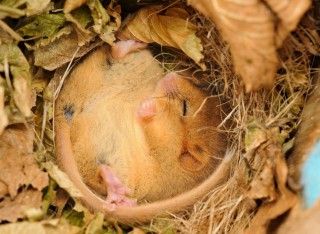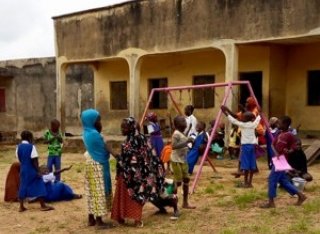
Professor Stephen Morse
Academic and research departments
Centre for Environment and Sustainability, School of Sustainability, Civil and Environmental Engineering.About
Biography
Steve joined the Centre for Environment and Sustainability in August 2010, having previously been at the University of Reading (Geography) and University of East Anglia (Development Studies). He has a background in applied biology, and his research and teaching interests are broad spanning both the natural and social sciences. Steve has helped pioneer a number of participatory methodologies for sustainability assessment, including Triple Task. He has been involved in research and sustainable development projects across Europe, the Mediterranean, Africa, Central/Latin America and Asia.
Affiliations and memberships
News
Food Fighters
This Video is about Food security, which should matter to us all, and while the term may be unfamiliar, we can all recognise its opposite - food insecurity; hunger, food banks, food contamination and rising prices in the supermarket, to name but a few. It is when things go badly wrong that issues surrounding food become more apparent. This is when they register on our radar. But what about challenges to food security in other countries, perhaps far away from us? Should we care? Should we do anything to help? If we should, then what can we do, especially in these days of reduced aid budgets? These are the questions at the heart of the video, and they are very timely given that July 2025 is the 40th anniversary of ‘Live Aid’, a major music event hosted at Wembley Stadium in London and JFK Stadium in Philadelphia and intended to raise awareness of famine in Africa. The video is intended for children taking subjects such as geography, sociology, natural science and agriculture and builds upon a book entitled ‘Food most royal. You can access this book via this link: https://www.amazon.co.uk/Food-most-Royal-Nurture-Posterity-ebook/dp/B08…
ResearchResearch interests
- Methodologies for assessing sustainable development, including indices and indicators
- Use of Earth Observation to populate indicators of sustainable development
- Agricultural/rural development (including sustainability indicators, sustainable livelihood analysis, integrated pest management, microfinance)
- Partnerships in sustainable development
- Methodologies for stakeholder participation in sustainable development
Research collaborations
- EU Framework 7 project (POINT) exploring the policy use of indicators in sustainable development and some key sectors (transport, energy and agriculture) with a number of partners throughout Europe.
- ESRC funded project entitled 'Analysing partnership in aid chains: A Catholic Church case study'.
- EU DG Environment funded project entitled 'Assessment of the economic performance of genetically modified crops worldwide'.
- DFID Research Into Use project on up-scaling sustainable seed yam production systems in West Africa.
- Bill and Melinda Gates Foundation project entitled 'Yam Improvement for Income and Food security in West Africa' (YIIFSWA).
- EU Framework 7 project entitle 'Servicizing Policy for Resource Efficient Economy' (SPREE)
- Bill and Melinda Gates Foundation project entitled 'Positive Selection and Community Phytosanitation for Improved Quality of Farmer-saved Seed Yam in West Africa' (CAY-SEED).
- EU Horizon 2020 funded project entitled 'Sweeteners and sweetness enhancers: Impact on health, obesity, safety and sustainability' (SWEET)
- SPRINT funded project entitled 'Demonstrator applications for monitoring recovery post disaster'
- EU EMPIR funded project entitled 'Metrology to establish an SI-traceable climate observing system (SRTv13 Met4ClimOS).
Google Scholar profile: Stephen Morse - Google Scholar
Research interests
- Methodologies for assessing sustainable development, including indices and indicators
- Use of Earth Observation to populate indicators of sustainable development
- Agricultural/rural development (including sustainability indicators, sustainable livelihood analysis, integrated pest management, microfinance)
- Partnerships in sustainable development
- Methodologies for stakeholder participation in sustainable development
Research collaborations
- EU Framework 7 project (POINT) exploring the policy use of indicators in sustainable development and some key sectors (transport, energy and agriculture) with a number of partners throughout Europe.
- ESRC funded project entitled 'Analysing partnership in aid chains: A Catholic Church case study'.
- EU DG Environment funded project entitled 'Assessment of the economic performance of genetically modified crops worldwide'.
- DFID Research Into Use project on up-scaling sustainable seed yam production systems in West Africa.
- Bill and Melinda Gates Foundation project entitled 'Yam Improvement for Income and Food security in West Africa' (YIIFSWA).
- EU Framework 7 project entitle 'Servicizing Policy for Resource Efficient Economy' (SPREE)
- Bill and Melinda Gates Foundation project entitled 'Positive Selection and Community Phytosanitation for Improved Quality of Farmer-saved Seed Yam in West Africa' (CAY-SEED).
- EU Horizon 2020 funded project entitled 'Sweeteners and sweetness enhancers: Impact on health, obesity, safety and sustainability' (SWEET)
- SPRINT funded project entitled 'Demonstrator applications for monitoring recovery post disaster'
- EU EMPIR funded project entitled 'Metrology to establish an SI-traceable climate observing system (SRTv13 Met4ClimOS).
Google Scholar profile: Stephen Morse - Google Scholar
Teaching
- Contributions to the MSc modules 'Foundations of Sustainable Development', 'Sustainable Development Applications' and 'Environment, Science and Society'
- Contributions to undergrad modules in the BSc Environment and Sustainability
- Dissertation supervision at masters level.
Sustainable development goals
My research interests are related to the following:
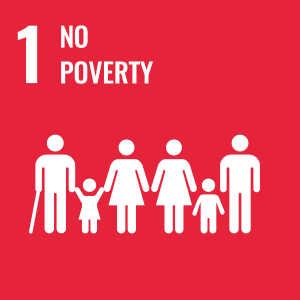
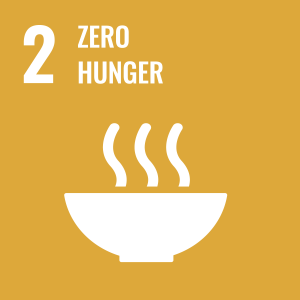

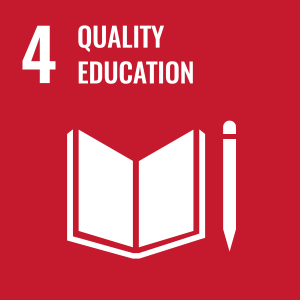
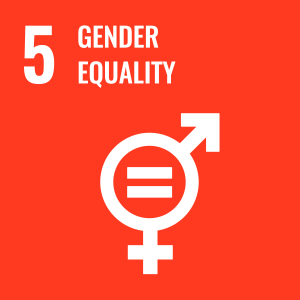
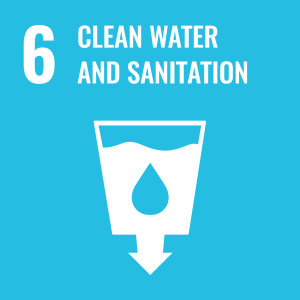
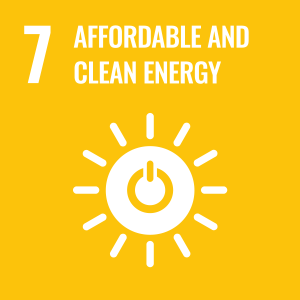






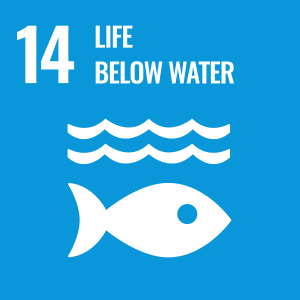
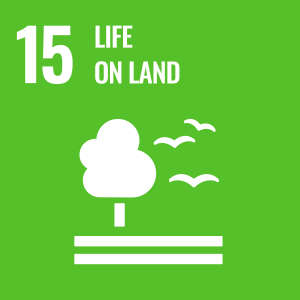
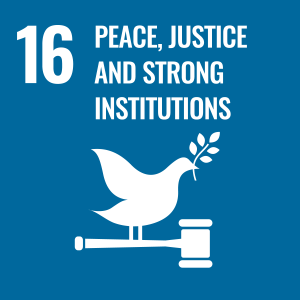
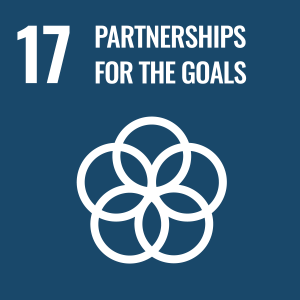
Publications
Highlights
Morse S. (2026). Sustainability Perception Indicators. Theory and Practice of Perception Indicators in Sustainability. Routledge, London. ISBN: 978-1-032-59859-8 (hbk), 978-1-032-59853-6 (pbk), 978-1-003-45660-5 (ebk). Link: Sustainability Perception Indicators: Theory and Practice of Perceptio (routledge.com)
This book offers a comprehensive analysis of the background, practice, potential and challenges associated with developing and using perceptual indicators for assessing sustainability. Sustainability indicators (SIs) are usually described and portrayed as quantitative metrics that rest above the human realm of subjectivity, opinion and bias. Thus, they are the basis for objectively measuring progress towards the attainment of targets in sustainable development. Unlike the ‘hard’ metrics described above, the way in which we experience the world and frame our personal decisions based on that experience, past and present, is founded on perceptions and these can be inherently subjective. This book argues that perception-based indicators are an important subset of sustainability indicators in assessing sustainability, environmental quality and well-being. The chapters draw upon examples such as the Corruption Perception Index (CPI) produced by Transparency International, and a variety of happiness indices amongst many others. Divided into two parts, the first section provides a broad review of the field of SIs, addressing the challenges involved in identifying, defining and populating SIs, especially for countries in the Global South. The second part of the book summarises the range of participatory approaches that have often been used to develop perception-based indicators of sustainability, along with their respective pros and cons.
Morse S. (2023), Ranking Nations: The Value of Indicators and Indices? Edward Elgar, Cheltenham, Gloucestershire. ISBN: 978 1 80088 630 8. Link: Ranking Nations – The Value of Indicators and Indices? | Elgar Online: The online content platform for Edward Elgar Publishing
The monograph explores challenges associated with using index-based rankings for countries. Examining international ranking systems such as the Human Development Index and Corruption Perception Index, the book considers what they tell us about the world and whether there may be alternatives to these ranking techniques. It provides an important contemporary view on ranking systems by analysing not only how they are reported by traditional sources of media, but also by social media.
Morse, A, Andries A and Murphy RM (2022) (editors). Space for Sustainability: Using Data from Earth Observation to Support Sustainable Development Indicators. MDPI, Basel, Switzerland. ISBN 978-3-0365-4265-2 (Hbk); ISBN 978-3-0365-4266-9 https://www.mdpi.com/books/book/5666
Global progress toward living sustainably is now urgently needed. Actions for sustainability are typically informed through the use of indicator-based frameworks that encompass diverse attributes of the environmental, social and economic dimensions of ‘sustainability’. Reporting on such indicators is embedded in frameworks such as the United Nations Sustainable Development Goals (SDGs), with the primary responsibilities for reporting borne by national and local governments. Additionally, many businesses and public bodies (e.g., universities, health services) are increasingly under internal and external pressure to similarly report via these sustainability indicators, especially as part of the SDGs, and such reporting is of increasing interest to investors and the financial services sectors from a risk and assurance perspective. However, the use of these indicator-based frameworks involves many challenges, and one of the most significant of these is the challenge of acquiring sufficient, timely and good-quality data to populate these indicators via ‘conventional’ methods (e.g., surveys at the local, national or corporate level) as this is often expensive and time consuming. Many developing regions, in particular, suffer from a lack of resources or established systems for such data collection and, indeed, this is also proving to be challenging for more developed economies. One approach to address this issue of data provision for indicators of sustainable development (SD) is the use of Earth Observation (EO). EO-based data, geospatial information and ‘big data’ can support the population of sustainability indicators at all scales, and the integration of these sources is a step forward in advancing the well-being of our societies. While EO-derived data have been used for many years to assess important issues such as deforestation and changes in land use, their use to address more socioeconomic issues (e.g., inequality, poverty, corruption, health care) within SD remains limited. Nonetheless, EO tools and technologies are developing rapidly with an expanding range of capabilities, resolutions, frequency, data power, accuracy, etc., and this is anticipated to continue into the foreseeable future. The papers in this book set out some of the frontiers regarding the use of EO data for SD indicators, and given the rapid progress in the field, it provides a timely and welcome milestone in the journey.
Morse S., McNamara, N., Adamu S., Nathan N, Adedipe Y, Kabir M, Onwuaroh A and Otene N. (2020). Social Networks and Food Security in the Urban Fringe. Part of the ‘Urban Perspectives from the Global South’ series. Springer Nature, Cham, Switzerland. https://link.springer.com/book/10.1007%2F978-3-030-46359-5
The book explores how social groups in the urban fringe of Abuja, Nigeria, engaged with a series of development projects spanning 15 years (2003 to 2018) which focused on the enhancement of food security for farming households. The groups were at the heart of these development projects and the book presents the many insights that were gained by farmers and project agents working within these partnerships and provides advice for those seeking to do the same. The book also explores how the social groups attempted to lever benefits from being near to the fastest growing city in Africa and a centre of economic and political power. While much has been written about social groups and their embeddedness within wider social networks in Africa and in other parts of the world, the exploration of the role of social groups within development projects is an area that remains relatively unchartered and this book seeks to fill that important gap in knowledge. It provides an important contribution for all those researching and working with social groups in the developing world
Assessing how bioenergy projects translate into socioeconomic benefits is needed to demonstrate its value in industrial decarbonisation and sustainability strategies. This work presents a framework for bioenergy sustainability assessment wherein a set of indicators are selected, co-developed and weighted using a participatory approach. The framework integrates stakeholder identification, literature review and overlap analysis to derive an initial set of indicators used for participatory selection. The framework applied to bioenergy in community-based forestry in Mexico with participation of community and local stakeholders revealed sustainability indicator priorities and relevance in regards to occupational injury, illness and fatalities, training and/or education, use of renewable energy and household income (economic pillar); access to household electricity service, to municipal water supply, to sewerage service and to fuel, and female participation (social pillar); the loss of natural resources and grazing land, waste reduction for energy and sewage water treatment (environmental pillar). Indicators related to streetlighting were downplayed by the participants while forest fires, soil erosion, reduction of waste burning, and reduction of water use were indicators derived from the concerns expressed by the participants. The framework was useful for capturing stakeholders' relevance and priorities to make indicator selection more realistic in measuring the bioenergy impacts and co-benefits for local community. The framework using a participatory approach allows for validation with stakeholders across the scales (local, regional, and national) which can be applied to other bioenergy case studies. The framework is also a step towards an approach integrating bottom-up and top-down perspectives.
Topic: This review explores the important issue of the ‘institutional sustainability’ (IS) of faith-based development organizations (FBDOs) providing microfinance services to the poor in the developing world. IS has often been equated with the financial self-reliance of microfinance service providers, with income from credit charged on loans as well as other fees being used to pay for the service. While the approaches and tensions inherent in the attainment of IS by microfinance providers seeking to help the poorest in society have been well explored in the literature, there has been no specific analysis of FBDO providers and the special challenges they may face. Methodology: This paper is based on a review of the literature using a combination of search terms such as ‘microfinance’, ‘development’, ‘institutional sustainability’, ‘financial self-reliance’ and ‘faith’, with a special emphasis on the literature published between the 1990s and 2023. Results: One of the main findings is that Christian and Hindu FBDOs providing microfinance largely follow the financial self-reliance conceptualization of IS applied by secular providers and apply much the same set of responses regarding the setting of interest rates and other charges and the management of repayment amongst their client base. However, FBDOs of the Islamic faith take a broader perspective on IS and include the need for spirituality and religious development amongst their clients. Future directions: This paper makes a number of suggestions for future research, including (1) the reasons why religious development and spirituality do not appear to be strong issues for Christian and Hindu FBDOs relative to their Islamic counterparts; (2) the potential for inter-faith collaboration between FBDOs and secular providers, between FBDOs of different faiths as well as FBDOs from versions of the same faith (e.g., Protestant and Catholic); and (3) whether FBDOs are more naturally predisposed and able to engage and collaborate with the informal microfinance sector than secular microfinance providers.
The research reported in this paper was designed to investigate the interconnection between students’ environmental education (EE) and their waste-separation behaviour, with students’ attitude, knowledge and sense of responsibility being the mediate factors, and explores how EE in schools could be improved. A questionnaire-based survey was employed and the views of 600 primary- and middle-school (PMS) students and 175 teachers in Yingtan City, Jiangxi Province, China were obtained. The results indicate that EE in Chinese schools positively affects students’ waste separation behaviour by affecting their attitude to waste separation. But the current EE in Chinese schools has not been able to improve students’ sense of responsibility for environmental protection. The incentives for teachers to include EE in their teaching includes the belief that EE in school would pass environmental knowledge to the students and cultivate their pro-environmental attitude which would eventually benefit the environment and society in the long run and the school’s requirement of using EE in the classroom. The main barriers are the schools’ neglect of EE and the teachers’ lack of EE knowledge. Suggestions for teachers and policy-makers at school level and local government level are put forward to improve EE in school and thereby improve students’ waste separation behaviour.
Due to the world's population growth, poor air quality (PAQ) has become a major health and environmental issue. Cities, in particular, have had to face the challenge of PAQ as a result of traffic and, in the case of the developing world, the use of diesel generators for domestic and industrial energy supply. As with other societal issues, such as corruption, that have perceptual indices to aid with their assessment, an Air Quality Perception Index (AQPI) could be pivotal in the assessment of air quality (AQ). The use of reference or instrument-measured information has been at the forefront of environmental assessment, but a perception-based index could provide a valuable supplementary approach. This paper discusses the potential for an AQPI based on research that took place on perceptions of air quality by residents in two cities, Abuja and Enugu, in Nigeria. The research was based on a survey of respondents who were asked to score various perceptual indicators of AQ. Utilizing the three most frequently perceived indicators of AQ identified in the survey, dust, smoke and smell/odour, an AQPI is presented and illustrated. The proposed AQPI follows a similar logic to that set out for the Human Development Index, with values that range from 0 to 1, with higher values suggesting better AQ. The paper makes the case for the AQPI as a complement to instrument-measured outcomes especially when the latter are rarely available such as in many cities of the global south due to high cost and operational capacity requirements.
The global move towards a circular economy, as well as that of achieving the United Nations Sustainable Development Goals (SDGs), has necessitated the search for several sustainable solutions in various sectors. Given this, the provision of sustainable waste management and electricity systems constitute a significant part of the SDGs, and the waste-to-energy (WtE) concept has recently become a key topic given that it can potentially help reduce the dependence on fossil fuels for energy generation, as well as minimizing the need to dispose of waste in landfill. However, to date, the sustainability assessments of WtE generation technologies have been limited in scope concerning the three-dimensional sustainability framework (economic, environmental, and social). Life Cycle Sustainability Assessment (LCSA) has been proposed as a potential approach that could comprehensively address these three pillars of sustainability simultaneously based on life cycle thinking. LCSA, as a holistic method, could also potentially deal with the complexity associated with decision-making by allowing for the consideration of a full range of possible sustainability consequences. LCSA is an analytical tool that integrates the Life Cycle Assessment (LCA), Life Cycle Costing (LCC), and Social Life Cycle Assessment (sLCA) methodologies, which already exist and continue to be developed. Individually, these life-cycle approaches tend to be used to point out particular ‘hotspots’ in product or service systems, and hence focus on direct impacts in a given sustainability domain, neglecting the indirect ones. LCSA aims for a more holistic sustainability perspective and seeks to address the associated challenge of integrating these three pillars of sustainability into an overall and more comprehensive sustainability assessment. This need for harmonization within the LCSA methodology is a major challenge in its operationalization. In recent years there has been steady progress towards developing and applying LCSA, including for WtE. The aim of this paper is to review the most recent trends and perspectives in developing countries, especially regarding how LCSA could help inform decision-making. The paper also analyses the LCSA literature to set out the theoretical and practical challenges behind integrating the three methods (LCA, LCC, and sLCA). The review was conducted via a search of keywords such as LCSA, waste, and energy in the Web of Science databases, resulting in the selection of 187 publications written in English. Of those, 13 articles operationalized LCSA in specific waste and WtE related case studies. The review provides a review of the application of LCSA for researchers, technological experts, and policymakers through published findings and identifies perspectives on new research. These include uncertainty, subjectivity in weighting, double-counting, the low maturity of sLCA, and the integration of the interconnection between the three dimensions (environmental, economic, and social dimensions) of LCSA results in decision-making. In addition, gaps (such as the integration of the interconnection between the three dimensions) that need to be addressed via further research are highlighted to allow for a better understanding of methodological trade-offs that come from using the LCSA analytical approach to assess the sustainability of WtE generation technologies, especially in developing countries. It is hoped that this study will be a positive contribution to environmental and energy policy decisions in developing countries faced with the dual problems of waste management and electricity supply along with their sustainable development goals.
In the late Professor G. Mace's iconic work entitled “Whose conservation?” she laid out the four movements through which U.K. conservation has progressed in the last 70 years. These are key concepts in understanding the motivations and perspectives behind conservation practice and continue to provide a useful framework through which to examine the contributions of related disciplines to habitat management and ecological restoration. Paleoecology, whilst well established as a field of research, is still finding its place as an applied science that is fully integrated into conservation practice. To facilitate the closing of this research-implementation gap, the paper presents a reflection of the current and potential contributions of paleoecology through the lens of Mace's four conservation philosophies. The key message that emerges is that the integration and application of paleoecology in conservation is essential to holistically address the ongoing biodiversity crisis.
The integration of palaeolimnology into conservation practice is crucial for effective ecosystem management and restoration. Palaeoecological data provide a unique long-term perspective on key ecological challenges and enable decision makers to better understand pre-disturbance conditions, natural system dynamism and responses to change. Despite this there exist well-recognised accessibility issues and a clear research-implementation gap, in particular, poor communication and lack of understanding of conservation practitioners’ constraints. This study evaluates the accessibility and value of palaeolimnological research to conservation practice by interrogating 60 key applied research papers identified via a rigorous pre-screening process to ensure relevance. The papers were assessed on the use of best practice accessibility criteria, from knowledge-exchange literature, and conservation-practitioner feedback was gathered on the value of conservation recommendations made within the papers. Despite widespread recognition of the importance of accessible research, our review reveals that essential accessibility criteria are inconsistently applied. Although there has been an increase in accessibility practices over time, co-production practices (including co-authorship, co-design of research, and linkage to relevant environmental legislation), showed no significant increase, despite being advocated for by the research community. Practitioner review highlighted the need for research to provide clear, actionable recommendations, and papers that detailed specific management or restoration guidance were particularly well-received, as were those that considered financial implications and summarised their findings more clearly. Equally, many papers were criticised for overly technical language and poor expression, generic suggestions, and a lack of practical consideration in their recommendations. The study highlights the importance of improving accessibility and co-production of knowledge to ensure that research outputs are accessible, relevant, and feasible to guide conservation efforts. To enhance the relevance and impact of applied palaeolimnology, we propose five key recommendations: (1) situate recommendations within existing practice and knowledge; (2) consider the practicalities for practitioners, including material and socio-economic aspects; (3) use clear and simple language; (4) employ easy-to-interpret diagrams and bullet points for recommendations; and (5) improve accessibility of older work. These recommendations are key in helping palaeolimnology progress towards a ‘gold standard’ of applied research, where it can be employed to greater effect to support conservation practice.
This review paper focuses on the development and application of the Sustainable Livelihood Approach (SLA), especially regarding its limitations, both in terms of its formulation and link to theory as well as practice. The SLA has proved to be a popular approach, not least because it is holistic and ‘people-centered’, and forces a requirement that livelihoods, along with their vulnerability and institutional contexts, are well understood before interventions are designed and implemented to help the community. However, its theoretical underpinning has been questioned, and some have pointed to the weak representation of important dimensions such as power, including its link to globalization, and culture, with the latter including faith. This paper explores the various ways that these issues have been addressed by using faith as a lens, and makes a case for a ‘Sustainable Living Approach’ (SLivA) to provide a stronger dovetailing with the capabilities/functionings approach of Amartya Sen. However, there is a trade-off between the complexity of frameworks and their practicability, and more work is needed in this area, especially in terms of the potential contribution of technologies such as very-high-resolution Earth Observation, machine learning, and artificial intelligence.
The UK government is seeking new food trade partners post-Brexit, with a focus on international meat trade to ensure supply chain stability while minimizing economic, environmental, and social damages. A UK Meat Trade-centred World Input-Output Model (UK-MTWIO) is developed with an innovative RAS method to assess the multiple impacts of different meat import scenarios. The results highlight the interdependence of meat types within the UK agricultural sector and the effects on other countries. Environmentally, most scenarios show the potential for reducing GHG emissions in the global agricultural sector. As for animal welfare, the UK can get higher animal welfare performance under beef import scenarios but suffer animal welfare losses with other scenarios. These findings underscore the intricate relationship between environmental, economic, and animal welfare impacts of global food trade. Policymakers should take a comprehensive approach and collaborate with all trading partners toward a more ethical and sustainable future.
There is a recognised role for the integration of palaeoecological data into conservation management, but its application remains hampered by a disconnect between academics and practitioners. We co-produced a palaeoecological investigation with conservation practitioners at an internationally important lowland heathland in the UK, to highlight the value of synergistic working between researchers and managers. We used a multi-proxy approach to reconstruct the site's ecological history over the past c.200 years, focusing on changes in vegetation, hydrology, and fire regimes, and translated the results into accessible visual and spatial formats to support management decisions. Our results reveal significant ecological changes, particularly a post-1950 shift from diverse wetland habitats to a drier, Birch-dominated landscape, linked to increased wildfire frequency and site acidification, as well as the decline of several conservation priority species. The spatial analysis highlights the need to consider site-specific heterogeneity in conservation planning. The management recommendations arising from the improved understanding of historical ecological conditions are focused on rare species conservation, increasing natural variability and the value of a rewetting programme to enhance resilience to climate change. The study highlights the value of a palaeoecological perspective for informing contemporary conservation management; in particular regarding in-site spatial considerations when making recommendations, as well as illustrating the importance of effective communication between researchers and land managers.
Purpose
There are increasing concerns regarding detrimental health effects of added sugar in food and drink products. Non-nutritive sweeteners (NNS) and sweetness enhancers (SE) are seen as viable alternatives. Much work has been done on health and safety of NNS&SE when consumed in place of sugar, but very little on their sustainability. This work aims to bridge that gap with an environmental study of replacing added sugar with NNS&SE in the context of drink and yoghurt.
Methods
A life cycle assessment (LCA) approach was used to compare environmental impact of a drink and yoghurt, sweetened with sucrose, to those sweetened with NNSs or an SE: stevia rebaudioside A, sucralose, aspartame, neotame, and thaumatin. Primary ingredients data were taken from preparation of foodstuffs for clinical trials. Results are reported via the ReCiPe 2016 (H) method, with focus on land use, global warming potential (GWP), marine eutrophication, mineral resource scarcity, and water consumption. Impacts are reported in terms of 1 kg product. Scenarios explore sensitivity of the LCA results to change in background processes, functional unit, and sweetener type. This research was conducted as part of the EU Horizon 2020 project SWEET (sweeteners and sweetness enhancers: impact on health, obesity, safety, and sustainability).
Results and discussion
Replacing sugar with an NNS or part-replacing with an SE is shown to reduce environmental impact across most impact categories, for example, on a mass basis, GWP for a drink reduces from 0.61 to approx. 0.51 kgCO2-eq/kg and for a yoghurt from 4.15 to approx. 3.73 kgCO2-eq/kg. Variability in environmental impact is shown to be relatively small between the NNSs, indicating that choice of NNS is less important than the reformulation changes required to accommodate the loss of sugar. Reporting impact in terms of calorie density, instead of mass, shows greater reduction in environmental impact when using an NNS or SE and shows how important functional unit is when reporting impact of these products.
Conclusion
This study is the first to compare food or drink products sweetened with sugar, NNS, or SE. Results show that there is great potential to reduce environmental impact of sweetened drinks and yoghurts. Moreover, the choice of NNS does not greatly affect the environmental impact of either product. Therefore, this research shows that choices relating to replacing added sugar may be based more upon health or formulation needs and less on environmental concerns.
